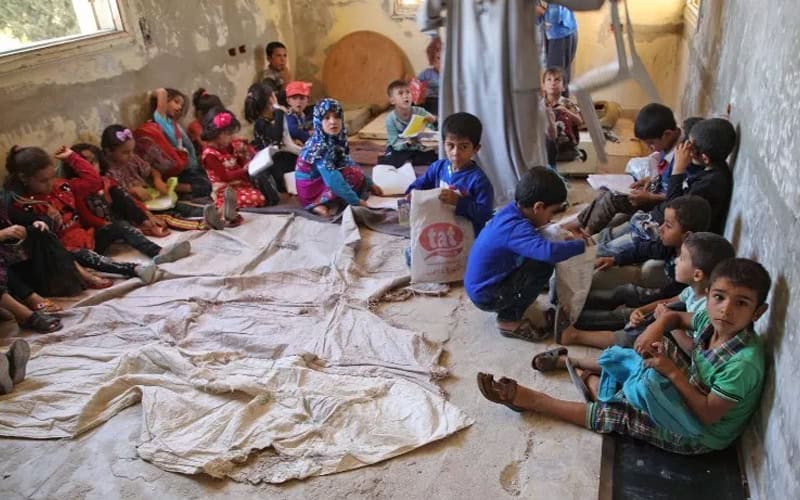BEIRUT: Thousands of children risk missing out on their education in northwestern Syria after a months-long regime assault on the jihadist-run bastion that has closed dozens of schools, a charity said.
A fragile ceasefire has held in the Idlib region since Saturday, following four months of air strikes that have killed hundreds of civilians and caused mass displacement.
“Thousands of children due to start the school year in northwest Syria may not have access to education” after the latest violence, Save the Children said.
Classes are set to start at the end of September, but just over half of the region’s 1,193 schools can still operate, it said.
“As the new school year starts, the remaining functional schools can only accommodate up to 300,000 of the 650,000 school-age children,” it said.
The heavy bombardment since late April has damaged or impacted 87 educational facilities, the Britain-based NGO said.
A further 200 schools are being used as shelters for those displaced by the fighting, it added.
The Idlib region is home to some three million people, almost half of whom have been displaced from other parts of Syria in the country’s eight-year war.
Children make up nearly half of the region’s total population, the United Nations says.
The violence since late April has killed more than 960 civilians, according to the Syrian Observatory for Human Rights, and displaced more than 400,000 people, the UN says.
After bombardment damaging schools or forcing them to close, many parents are scared to send their children to those still open, Save the Children said.
“Teachers are telling us that parents are pleading with them to shut schools for fear of them being attacked,” the group’s Syria country director Sonia Khush said.
“Many children are dealing with losing their homes, loss and grief. They should not have to fear losing their lives whilst they try to learn,” she added.
Idlib has since January been ruled by Hayat Tahrir al-Sham, an alliance led by Syria‘s former Al-Qaeda affiliate.
Syria‘s conflict has killed more than 370,000 people and displaced more than half of the country’s pre-war population since starting in 2011 with the brutal repression of anti-government protests.

